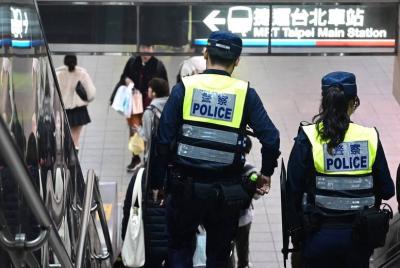Academics from both sides of the Taiwan Strait recently renewed calls for cooperation between Taiwan and China in managing the situation in the South China Sea, suggesting the two sides lay a basis for possible joint exploration in the region that could involve other claimants.
They suggested that the governments on both sides of the strait forge cooperative ties in the region “in a pragmatic and incremental manner” at a time when the course of cross-strait political relations is “uncertain” and the challenges are “pressing.”
Despite all claimants accepting the principle of “shelving disputes and going for joint development,” there has been only limited progress made to materialize that goal, they said.
In sharp contrast were the relentless efforts of claimants acting unilaterally to woo international investors into the region, they said, singling out Vietnam and the Philippines.
Vietnam, like Taiwan and China, claims sovereignty over the 53 islands in the region, which is also partially claimed by the Philippines, Malaysia and Brunei.
Led by Liu Fu-kuo (劉復國), a research fellow at National Chengchi University’s Institute of International Relations, and Wu Shicun (吳士存), president of China’s National Institute for South China Sea Studies, the group of 16 academics from various institutions in Taiwan and China called for cross-strait cooperation to create benefits for both sides.
Lin Ting-hui (林廷輝), a post-doctoral research fellow at the Center for Asia Pacific Area Studies at Academia Sinica, said that President Ma Ying-jeou’s (馬英九) decision on whether his administration teams up with China on the issues will be contingent on the international situation.
The US has been very concerned about the government’s plans to beef up its military deployment on Itu Aba Island (Taiping Island, 太平島), the largest of the Spratly Islands (Nansha Islands, 南沙群島) controlled by Taiwan, because China may use it as an excuse to use military action against Vietnam and the Philippines should they take provocative action, Lin said.
An article co-authored by Wu and his colleague Liu Feng (劉峰) suggested that issues related to safeguarding the interests of Chinese people in the South China Sea and maintaining the integrity of China’s territory be placed on the agenda for cross-strait negotiations.
Among other proposals, the academics said that state-run oil refiner CPC Corp, Taiwan (CPC, 台灣中油) and China’s state oil giant, China National Offshore Oil Corp (CNOOC), should expand their existing cooperation to exploit resources from waters north of the Pratas Islands (Dongsha, 東沙群島) to waters off its eastern coast and waters around the Spratly Islands.
The academics urged both governments to start theoretical research on the “nine-dotted line,” the demarcation line used by both China and Taiwan for territorial claims in the South China Sea.
To make the claim legally defensible, both Taiwan and China should sort through historical archives to present “concerted arguments” in support of the claim and to prepare rebuttal arguments if the claim is found to be contrary to the law, they said.

Beijing could eventually see a full amphibious invasion of Taiwan as the only "prudent" way to bring about unification, the US Department of Defense said in a newly released annual report to Congress. The Pentagon's "Annual Report to Congress: Military and Security Developments Involving the People's Republic of China 2025," was in many ways similar to last year’s report but reorganized the analysis of the options China has to take over Taiwan. Generally, according to the report, Chinese leaders view the People's Liberation Army's (PLA) capabilities for a Taiwan campaign as improving, but they remain uncertain about its readiness to successfully seize

Taiwan is getting a day off on Christmas for the first time in 25 years. The change comes after opposition parties passed a law earlier this year to add or restore five public holidays, including Constitution Day, which falls on today, Dec. 25. The day marks the 1947 adoption of the constitution of the Republic of China, as the government in Taipei is formally known. Back then the Chinese Nationalist Party (KMT) governed China from Nanjing. When the KMT, now an opposition party in Taiwan, passed the legislation on holidays, it said that they would help “commemorate the history of national development.” That

Taiwan has overtaken South Korea this year in per capita income for the first time in 23 years, IMF data showed. Per capita income is a nation’s GDP divided by the total population, used to compare average wealth levels across countries. Taiwan also beat Japan this year on per capita income, after surpassing it for the first time last year, US magazine Newsweek reported yesterday. Across Asia, Taiwan ranked fourth for per capita income at US$37,827 this year due to sustained economic growth, the report said. In the top three spots were Singapore, Macau and Hong Kong, it said. South

Police today said they are stepping up patrols throughout the Taipei MRT system, after a social media user threatened to detonate a bomb at an unspecified station this afternoon. Although they strongly believe the threat to be unsubstantiated, Taipei Metro police and the Railway Police Bureau still said that security and patrols would be heightened through the system. Many copycat messages have been posted since Friday’s stabbing attacks at Taipei Main Station and near Zhongshan MRT Station that left three dead and 11 injured, police said. Last night, a Threads user in a post said they would detonate a bomb on the Taipei